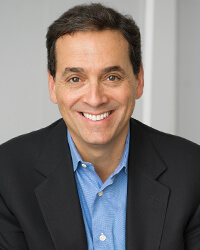Daniel Pink to Share the Science Behind Good Timing
 Security professionals have a tremendous responsibility. Planning to create and providing a workplace that protects the safety and security of people and key assets is rigorous work that calls for continuous scanning, preparation, prioritization, investigation, analysis, and a host of other critical thinking skills just to decide what actions and activities will do the most good.
Security professionals have a tremendous responsibility. Planning to create and providing a workplace that protects the safety and security of people and key assets is rigorous work that calls for continuous scanning, preparation, prioritization, investigation, analysis, and a host of other critical thinking skills just to decide what actions and activities will do the most good.
In his keynote address, “How to Make Time Your Ally and not Your Enemy,” streaming in each learning theater and online beginning at 8:30 a.m. EDT on 27 September, thinker and author Daniel Pink will share why, surprisingly, when you do something can be every bit as important as what you decide to do.
When Pink talks about getting the timing right, however, he’s not talking about intuitively reading a room or other signs. Pink’s book, When: The Scientific Secrets to Perfect Timing, and his presentation will explain why timing is not an art—it is a science. Literally, the time of day you do something can have drastic implications for the outcome of what you do.
There hasn’t been much opposition to Pink’s ideas, he tells The GSX Daily in an interview about his keynote.
“I think in part because I’m not announcing some kind of philosophy or ideology,” he adds. “I’m just basically saying, ‘here’s what the science tells us about how our performance differs at different times of day. Here’s what the science tells us that when dealing with a project beginning have one effect, endings have another effect, and midpoints have another effect.’ So it’s more people saying, ‘You’re probably more right than wrong, so what do I do about this?’”
In the session, Pink will present some of the research behind his conclusions. Attendees will learn that everyone has a chronotype and a corresponding daily rhythm. From these rhythms, the audience will learn why some kinds of work—say the kind requiring the most concentration—is better suited for a particular time of day, while other types of work—the kind requiring a spark of inspiration, for example—are best for a different time.
And then there’s downtime, the time when you will not be at your best and the work you do will suffer. Pink says he understands why for security, this is a particular problem.
“It’s not like we can say we’re not going to have security during that time,” he adds. “You have to have security 24-7.”
In his keynote, Pink will talk about research that, while not eliminating the downtime problem, can at least help mitigate it.
And finally—crucially, even—attendees will learn why you should never, ever schedule elective surgery in the afternoon.
Scott Briscoe is the content development director for ASIS International and contributor to Security Management, the parent publication of The GSX Daily.
